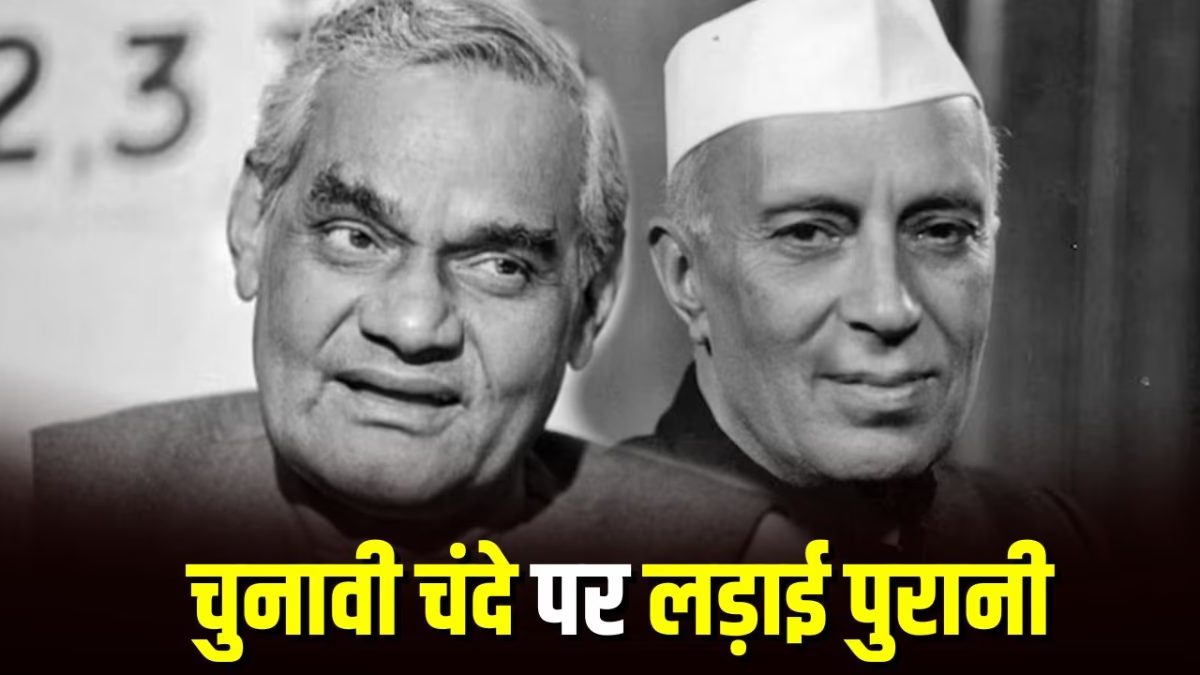The electoral bonds have sparked nationwide debate. The opposition is vocal about electoral donations, and the Supreme Court has emphasized transparency and nullified the policy. The government claims that electoral bonds facilitate the correct tracking of donations. On Sunday, Prime Minister Narendra Modi addressed election donations for the first time, stating that prior to 2014, no agency could reveal the source and destination of funds. Thanks to electoral bonds, clarity now exists on who donates how much and to whom, he argued.
Let's explore the episode of electoral donations in 1962...
This isn't the first time electoral donations have caused a stir. Earlier, too, they've been controversial. Data indicates that ruling parties have consistently received the highest donations. Even before electoral bonds, the party with the greatest likelihood of coming to power was favored by corporate houses. Recently, petitioners in the Supreme Court argued similarly, while the government maintains electoral bonds promote transparency, compelling parties to disclose their finances to the Election Commission.
'Is the government indebted under favors?'
Petitioners argue that the ruling party or those likely to assume power receive oversized contributions from corporates, who then expect favorable actions in return. Thus, the party feels obligated to return these favors, even legitimizing unauthorized activities.
Understand the fascinating Atal-Nehru era tale....
We turn back to 1962 when Jawaharlal Nehru was Prime Minister. At that time, Jana Sangh struggled with scant resources and finances, with a young leader, Atal Bihari Vajpayee, emerging as a powerful orator whose speeches captivated audiences. Despite losing in the Lok Sabha elections, Deendayal Upadhyaya ensured Vajpayee was in parliament through the Rajya Sabha. He became the Jana Sangh's parliamentary leader on April 3, 1962.
'Don't companies have a moral right to donate?'
Vijay Trivedi's book 'I Will Not Give Up' indicates that during the 1960s, Jana Sangh, battling financial scarcity, was overshadowed by a Congress-supported by industrial donations. In August 1962, Vajpayee proposed a private member bill in the Rajya Sabha to amend the Companies Act, 1956, suggesting companies be prohibited from donating to political parties, arguing they lacked the moral right to allocate shareholders' funds without their consent.
Vajpayee's remarkable political journey...
Atal Bihari Vajpayee entered Indian politics in 1951 and initially lost the 1955 Lok Sabha election but succeeded in the 1957 elections from Balrampur, Lucknow, and Mathura. While victorious in Balrampur, he lost in Lucknow and secured only fourth place in Mathura.
Vajpayee’s tenure as Prime Minister
Serving as an MP for ten Lok Sabha terms and two in Rajya Sabha, Vajpayee became the first BJP leader to serve as Prime Minister. His tenure witnessed three terms, with the first in 1996 lasting just 13 days and the second government falling in 2004. Yet, he steered a coalition government to full-term success after the 1999 elections.
BJP receives the highest electoral donations
Recent data released by SBI, shared by the Election Commission, reveals that BJP amassed the largest share of electoral donations, amounting to 6060.51 crore INR. TMC received 1609.53 crore, Congress 1421.86 crore, BRS 1214.70 crore, and BJD 775.5 crore. This data spans electoral bonds purchased from April 12, 2019, to January 24, 2024.
Further readings: 'Electoral Bonds: Future Gaming gave most to TMC not DMK; know the major donors for BJP and Congress.'




